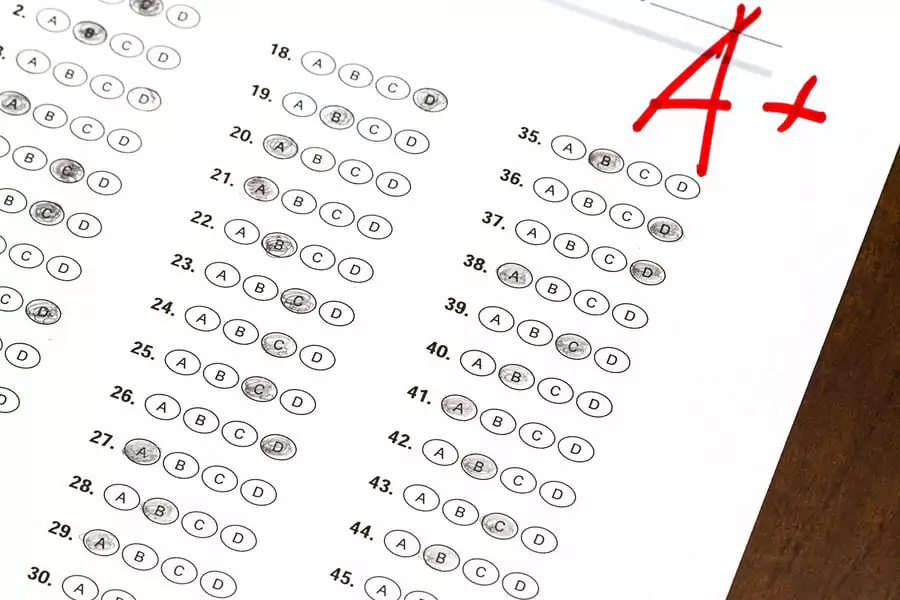In a modern era where innovation and adaptability are king, educational practices are no exception. The burning question at the heart of the issue: Is the traditional grading system still relevant and effective, or does it need a significant overhaul?

✅ AI Essay Writer ✅ AI Detector ✅ Plagchecker ✅ Paraphraser
✅ Summarizer ✅ Citation Generator
Robert Talbert, a well-respected mathematics professor, author, and educational reform advocate, has taken the lead in confronting this question. In an article penned by Talbert, titled “A New Dawn in Education,” he pushes for a critical evaluation of the long-established grading system, arguing that it may not reflect students’ true learning and understanding. His views and proposed solutions have initiated a significant debate, sparking fresh insights into the future of education.
Let’s explore the pressing issues and significant grade turns in, the historical context, the alternatives, and the future implications of such a reform.

Key Takeaways:
- Robert Talbert calls for a reevaluation of traditional grading systems, advocating for a more accurate reflection of student learning.
- Talbert pushes for mastery-based learning, focusing on genuine knowledge over test-taking skills.
- Talbert proposes ‘specifications grading’, a system emphasizing learning objectives and student autonomy.
- Talbert suggests the current grading system, born in the industrial revolution, may not suit today’s educational landscape.
The Problem with Traditional Grading Systems
In the realm of education, the longstanding grading system has been a cornerstone. However, a mounting body of evidence, including insights from mathematics professor Robert Talbert, urges us to rethink this traditional approach. Is it time to reevaluate the validity, reliability, and objectivity of the grading system we’ve come to know?
An Eye-Opening Student Experience
Talbert’s journey of grappling with the grading system began with a bright calculus student whose academic potential was overshadowed by her inability to excel in timed tests. “Gradually these quizzes and tests and timed assessments and the way it all fits together with points and averaging, it just wore her down,” Talbert recalls. This experience prompted him to reconsider the ways we measure learning and mastery, highlighting the inherent subjectivity in our current grading system.
Exploring Alternative Grading Practices
In a bid to reform this system, Talbert plunged into the world of alternative grading practices. His exploration culminated in the co-authoring of the book “Grading for Growth: A Guide to Alternative Grading Practices that Promote Authentic Learning and Student Engagement in Higher Education.” This book not only advocates for a shift towards competency-based learning but also places student autonomy at its core.
The Historical Context of Grading Systems
Talbert points out that our traditional grading system is a relatively recent development. “We did not really arrive at our current conception of points-based A, B, C, D, F style grading until almost the beginning of the 20th century. It’s really only about 100 years old,” he explains. The professor suggests that this system was born out of a necessity for standardization during the industrial revolution, but is it suitable for our current educational landscape?
The Pitfalls of the Current System
Arguably, the traditional grading system lacks equity, as it rewards test-taking skills more than genuine understanding or knowledge. “Grades are not a measure of intelligence. They’re a measure of your ability to take an assessment about something,” Talbert clarifies. This is where mastery-based learning becomes crucial, as it encourages growth rather than a snapshot of a student’s abilities at a single point in time.
The Promise of Specifications Grading
The alternative? Talbert’s preferred method is specifications grading, an approach that links the course grade to the number of learning objectives a student accomplishes.

This system underscores the idea of personalization, putting students in control of their educational journey while the teacher acts as a guide providing feedback.
Redefining Academic Rigor
Talbert’s call for school reform and a shift in the grading system is a direct challenge to the traditional notions of academic rigor. “If that means just the overall legitimacy academically of a course, I feel like it makes a course more rigorous because you’re just getting better data,” he asserts.
The Future of Grading Systems
In the age of technology, where algorithms and data-driven decisions are commonplace, the future of higher education could very well benefit from adopting a similar approach. As Talbert emphasizes, “What’s at stake is whether that course grade, which we take such pains to create and file away and curate, actually conveys any information at all about the student.”
A Call for Change
In essence, the call for a reevaluation of the traditional grading system is not simply about changing the way we grade. It is about ensuring that our educational practices are valid, equitable, and reflective of a student’s learning journey. It is about enabling teacher and student autonomy and involving parents more meaningfully in this process. As the conversation around the future of education continues, so too does the need
FAQ
Why is it important to rethink the traditional grading system?
Rethinking the traditional grading system is crucial as it promotes education equity, validity, and reliability. It’s about ensuring our assessment methods truly reflect a student’s learning and understanding rather than just their ability to take tests.
What are some of the limitations of the traditional grading system?
Traditional grading often lacks objectivity and subjectivity. It rewards test-taking skills over genuine understanding and knowledge, which can overshadow a student’s true potential. Also, it doesn’t foster student autonomy or encourage parental involvement.
What are some alternatives to the traditional grading system?
Some alternatives to traditional grading include mastery-based learning, competency-based learning, and specifications grading. These systems emphasize personalization, student autonomy, and the achievement of learning objectives over test scores.
What is mastery-based learning?
Mastery-based learning is a system where students progress upon demonstrating a thorough understanding or “mastery” of specific learning objectives. It’s an approach that promotes equity and fairness in education.
What is competency-based learning?
Competency-based learning is an approach where students advance based on their ability to demonstrate specific skills or competencies. It values practical understanding and application of knowledge over traditional assessments.
How can personalized learning support a more effective grading system?
Personalized learning, with its focus on individual student needs and learning pace, can foster a more effective grading system. It uses technology, data-driven algorithms, and encourages teacher and student autonomy. This approach can help create a grading system that truly reflects a student’s learning journey, paving the way for future school reform and the future of education.
Read more:
Internet of Things Security Challenges and Impact on Critical Infrastructure
NYC Schools Face ‘Quiet Problem’: A Striking Lack of Librarians
Effects of Race on Housing Inequality in New York city
Follow us on Reddit for more insights and updates.





Comments (0)
Welcome to A*Help comments!
We’re all about debate and discussion at A*Help.
We value the diverse opinions of users, so you may find points of view that you don’t agree with. And that’s cool. However, there are certain things we’re not OK with: attempts to manipulate our data in any way, for example, or the posting of discriminative, offensive, hateful, or disparaging material.